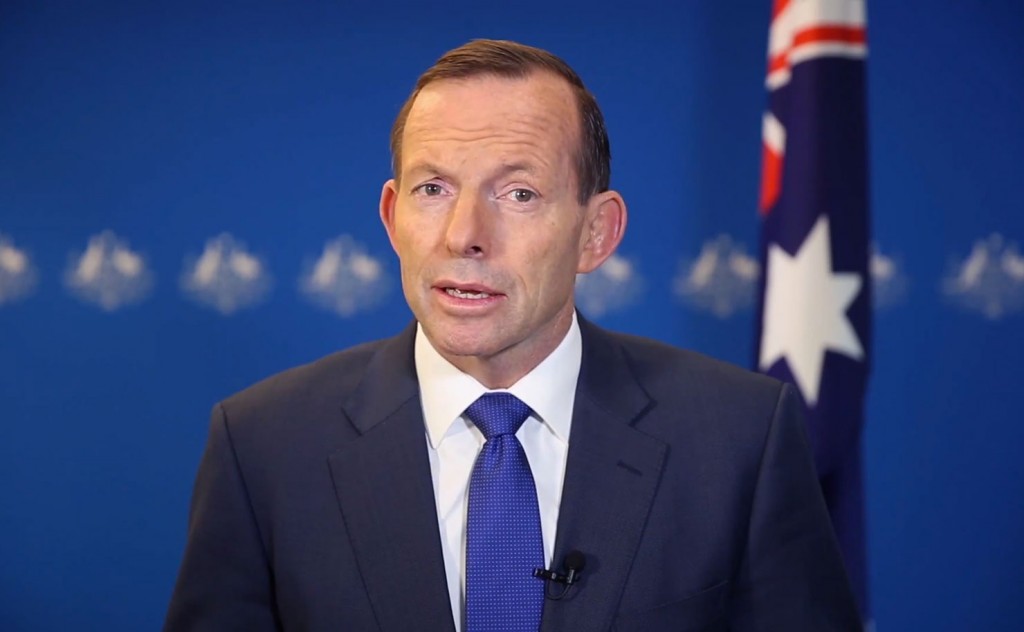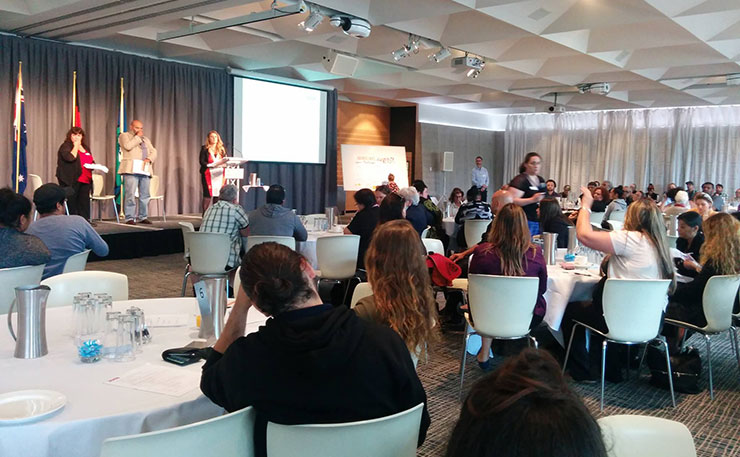The path to equality in Australia for First Nations people lies in treaty, not recognition, writes Kristen Zornada.
This week has seen the Daily Telegraph belatedly attempt to whip up a frenzy over the University of NSW teaching guides which instructs teachers to refer to the “settlement” of Australia as the “invasion”, succeeding in angering Alan Jones, Kyle Sandilands and loathsome internet commentators.
The notion of constitutional recognition has enjoyed public support for a few years, being brought to national attention by Noel Pearson’s Quarterly Essay A Rightful Place, and with government-sponsored efforts coalescing into the campaign, Recognise. Recognise explains that, “we need to fix the historical exclusion of Aboriginal and Torres Strait Islander peoples from Australia’s Constitution – the nation’s “rule book” and “founding document”, and proposes a series of constitution amendments.
By seeking to effect change through our constitutional arrangements, Recognise assumes that our current system, as shaped by the constitution, is more or less just, save for some wrinkles of injustice that need be ironed out from the fabric of shared values and inclusiveness.
Yet Australian values of “multiculturalism” and being inherently inclusive is only a relatively recent development. After all, the official practices that created and perpetuated the Stolen Generation continued until the 1970s. The White Australia policy was not repealed until 1973.
There is a forgivable tendency to want to read aspirations of equality into our history. While today we may claim to be a rich tapestry of multiculturalism, the reality is that our constitution is cut from a different cloth.
The “historical exclusion” of Aboriginal and Torres Strait Islander people from the nation’s founding document was no accident. The founders of our new country simply did not see a place for Indigenous people within Australian society. While we may have removed discriminatory references, beyond its explicit provisions, our Constitution preserves a power structure in which the oppression is not merely incidental, but in fact required to justify our own existence.

Australia, despite what former Tony Abbott might suggest, was a British colonial project.
The problem for colonial powers, as it was for Britain in Australia, is that usually the land they try to take over is already inhabited by Indigenous people. Therefore, for colonialism to be successful, Indigenous people must disappear.
Our Constitution as originally drafted made First Nations people disappear legally by stipulating that they shall not be counted in the census. If they disappeared, then the British could feel justified in taking First Nations land and resources because there was no-one left to take it from.
Given we created a system in which non-Indigenous Australia can only profit if First Nations people do not exist, it is difficult to see how First Nations people could ever progress within that system.
Constitutional recognition is a gift that non-indigenous Australia is only prepared to make because it is so small that it does not threaten destabilizing a system from which we all benefit. It is a gift which First Nations people are tempted to accept because it provides at least some relief in an otherwise unjust system.
But it is another initiative unlikely to rectify the disadvantaged situation in which we have placed Aboriginal and Torres Strait Islander people, much like a “quick acknowledgment of country at an event then carrying on with the celebration of colonialism” or the nebulous notion of “reconciliation”.
Recognise claims that constitutional recognition will create a shift in the national consciousness that will make the heritage of First Nations peoples part of the shared story of every Australian. Further, that such a shift will have symbolic and practical benefit, including improving Aboriginal and Torres Strait Islander health and wellbeing, and allow us to more readily make inroads to disadvantage and unite Australians through a mystical “shared pride and deeper connection” with our Indigenous heritage.
Yet there is no indication or evidence that constitutional recognition will meaningfully promote racial justice nor address the disadvantage that Aboriginals and Torres Strait Islander people face in Australian society today.
What does work in redressing disadvantage is empowering First Nations people to make their own decisions for their governance. The Harvard Project on American Indian Economic Development has found that when Indigenous peoples are responsible for their own governance, they consistently out-perform external government decision-makers on matters as diverse as governmental form, natural resource management, economic development, health care, and social service provision.
Empowering First Nations people with responsibility for their own destiny would seem to go much further towards meaningful recognition than a few passing lines in a document intended to create a legal structure to exclude them.
Indeed, recently in Victoria, over 500 indigenous leaders met to reject recognition and renew calls for a treaty. The idea of a treaty is not a radical one: Australia is the only developed country in the world not to have a treaty with its Indigenous peoples, notably lagging behind the United States, Canada, and our neighbours, New Zealand.

Nor is it a new one, having been promised to First Nations peoples since the 1970s. While in the 1990s Yothu Yindi reminded us of the promise with their iconic refrain “treaty now treaty yeah treaty now treaty yeah”, the federal government has yet to answer the call.
If being Australian means that we are truly committed to equality, then a passing mention to First Nations people in a blueprint for a nation that we created for ourselves is not going to cut it. We must reckon with our colonial history and understand all the ways in which it permeates our institution if we are ever to unravel it.
We must tie the fates of non-Indigenous and Indigenous Australia together if we expect to actually “close the gap” on First Nations disadvantage, and move forward together.
A treaty is an important step towards recognising the right of First Nations people to take their own direction, instead of having to follow a script that offers up secondary roles.
Donate To New Matilda
New Matilda is a small, independent media outlet. We survive through reader contributions, and never losing a lawsuit. If you got something from this article, giving something back helps us to continue speaking truth to power. Every little bit counts.





